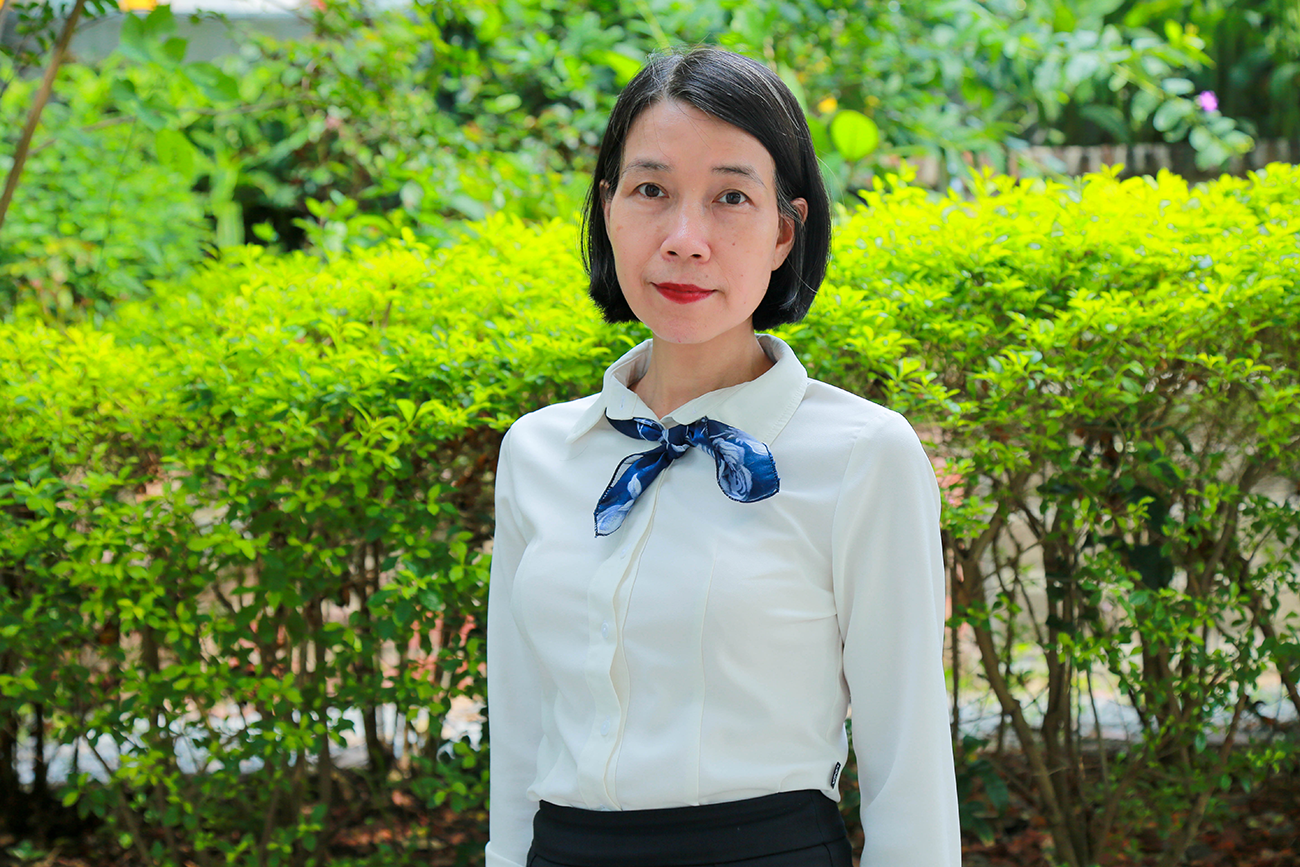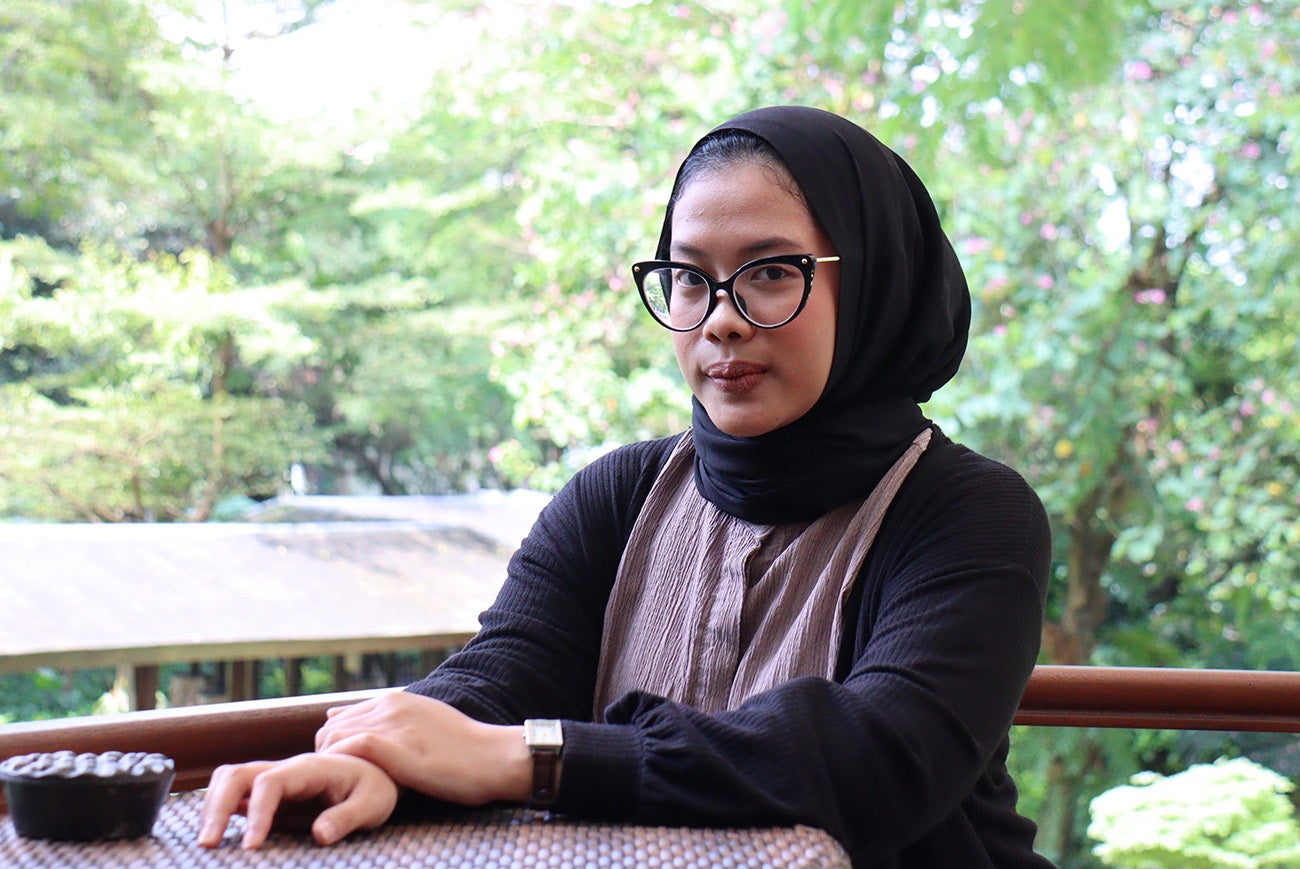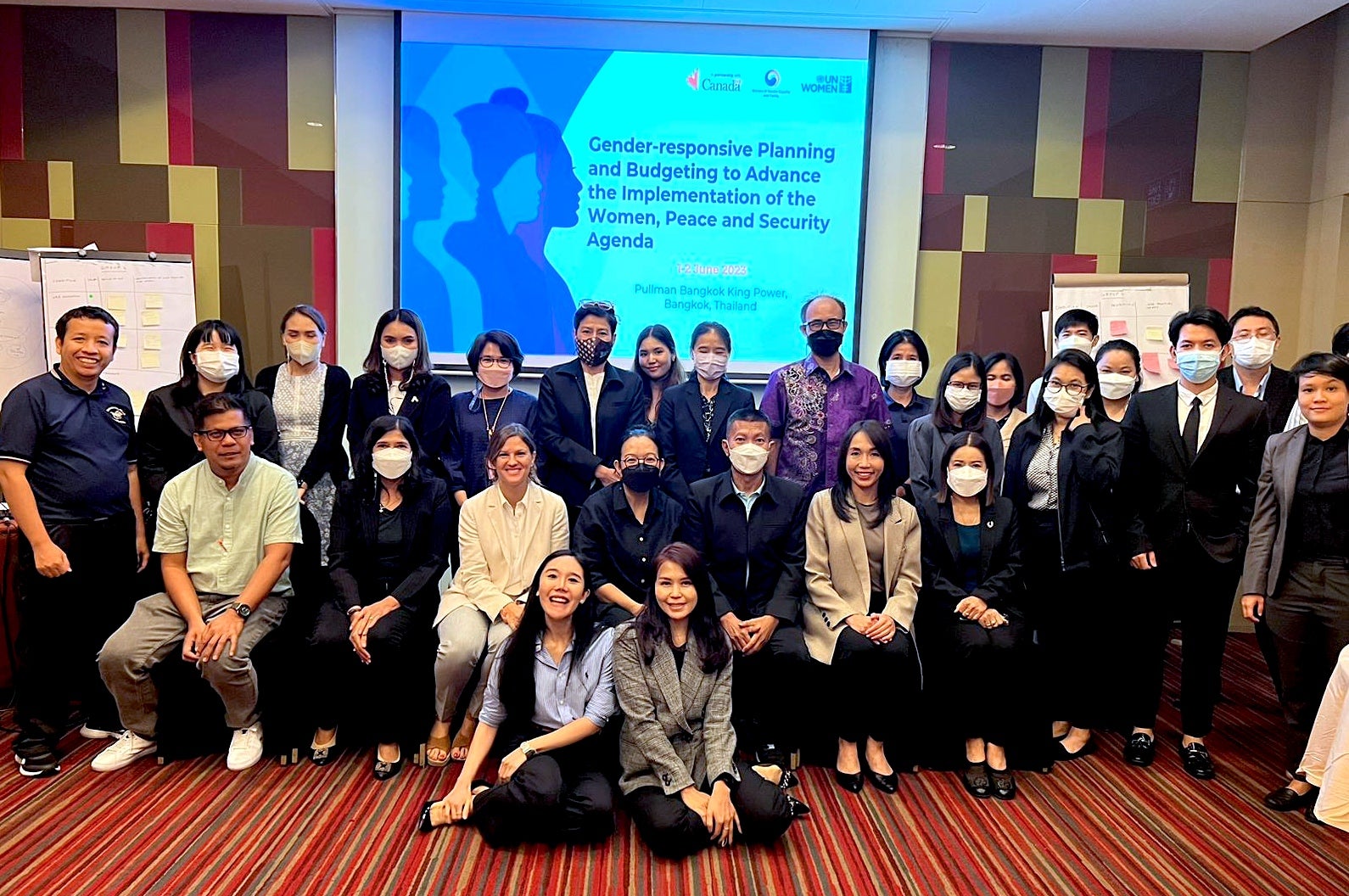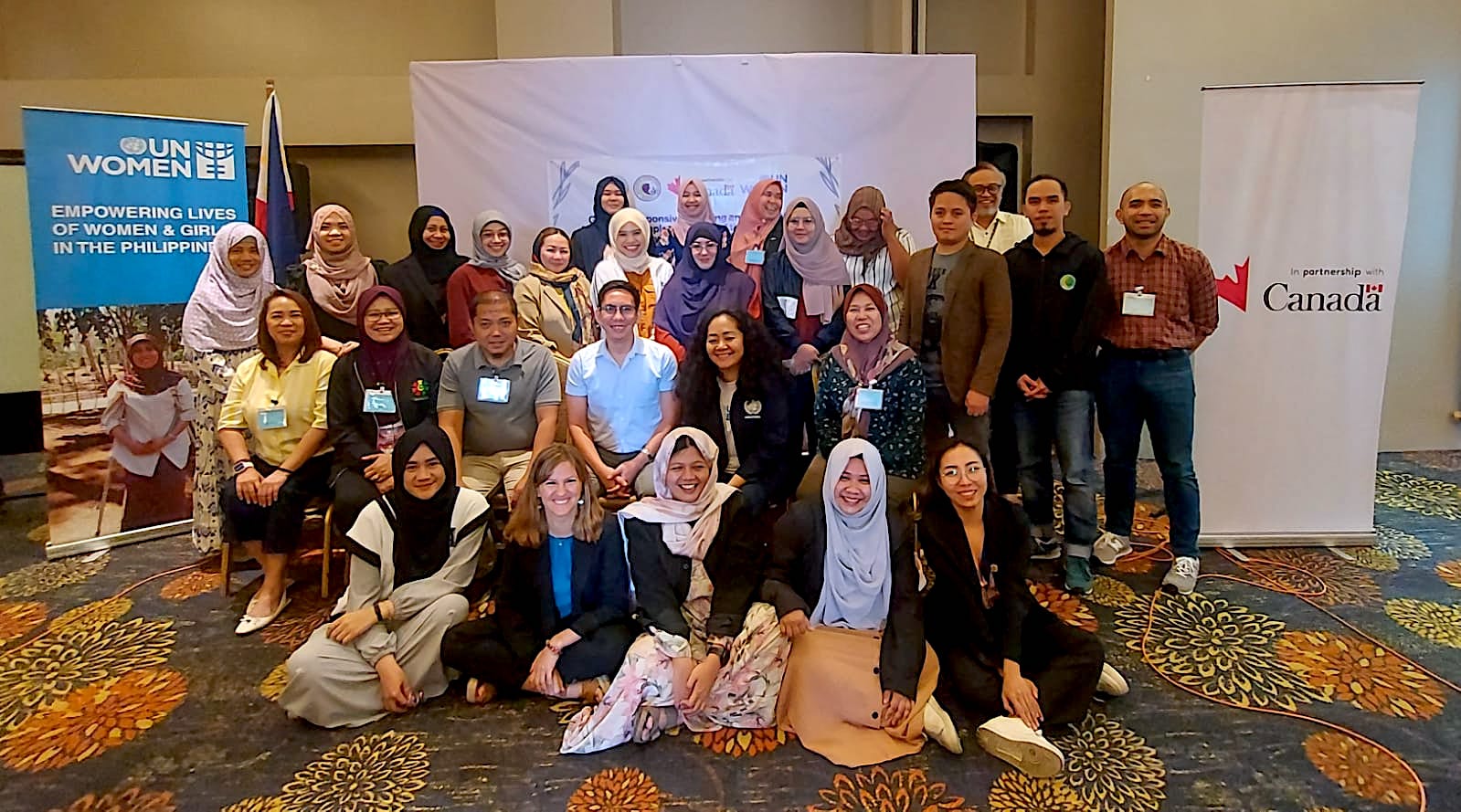UN Women supports South-East Asian countries improve financing for women and security policies
Date:
Author: Yoomi Jun
Jakarta, Indonesia – To build peaceful and secure environments for women, governments must not only make political commitments but also use budgeting processes, from planning stage onwards, that ensure that their policies meet the specific needs of women.
UN Women has been supporting the Member States of Association of Southeast Asian Nations (ASEAN) improve their use of gender-responsive budgeting (GRB) to develop and implement national policies aligned with the ASEAN Regional Plan of Action on Women, Peace and Security adopted in November 2022.
During June and July 2023, UN Women Indonesia organized four two-day Gender-responsive Planning and Budgeting Training workshops in Thailand, Viet Nam, Indonesia and the Philippines for a total of 99 government officers and policymakers from finance and other ministries, as well as government partner organizations, women’s agencies, and gender experts on gender-responsive budgeting and capacity needs assessment for national implementation of Women, Peace and Security agenda.
Gender-responsive budgeting takes into account the various needs of people of different genders and would include, for example, allocating funds for essential services for survivors of violence targeting women.

“Budgeting helps us identify programme priorities, thereby focusing on mobilizing and investing our scarce resources into the most appropriate areas,” said one of the workshop participants, Tran Thi Anh Thu, Deputy Head of Department of International Relations, Central Viet Nam Women’s Union.
Viet Nam is conducting nationwide consultations to draft its first National Action Plan on Women, Peace and Security. Thailand also is planning to develop its first national action plan. Indonesia is implementing its second national action plan and the Philippines is expected to adopt its third plan this year.

After the workshop, almost 100 per cent out of 99 participants (32 from Indonesia, 29 from Thailand, 25 from the Philippines, 12 from Viet Nam) responded they have increased knowledge on gender-responsive budgeting and how to improve financing for WPS agenda, and 84 per cent said they are confident to use the knowledge they gained in their work.
“Now I understand the urgency of the gender-responsive budgeting and planning and how it relates to [women, peace and security]. As the driving ministry, we will ensure the integration of gender into long-term, mid-term and annual development planning policies to strengthen the implementation of gender mainstreaming in Indonesia, said Safitri Diah Widiyanti, a staff member at the Directorate of Family, Women, Children, Youth and Sports, Ministry of National Development Planning, Indonesia.
Margarita Ozonas Marcos, the international consultant who led the workshops, said the participants showed energy, motivation and leadership. She said the four countries will set examples for others to follow on financing women, peace and security policies.
For successful financing, “it is very important to have a clear mapping on how we want to implement the programme or policy from the beginning with human rights and gender-responsive approach,” said Prita Annistya of the Ministry of Law and Human Rights in Indonesia. “And to ensure this, we need more and wider awareness-raising and education on [gender-responsive budgeting] including decision makers in high-level leadership, for stronger commitments.”
“The changes in the countries are produced thanks to the motivation of the people in key positions. We must wait to see the progress made in each country and continue to support the process in strategic moments when required,” added Ms Ozonas.
The workshops were organized under UN Women’s project, Empowering Women for Sustainable Peace: Preventing Violence and Promoting Social Cohesion in ASEAN, funded by the Governments of Canada, the Republic of Korea and the United Kingdom.

